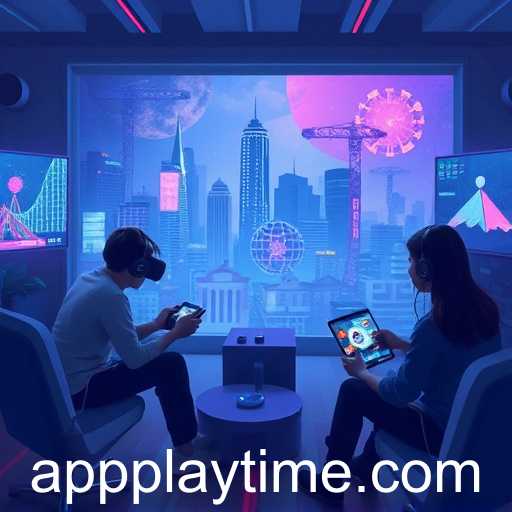In recent years, playtime has undergone a revolutionary transformation, particularly as digital technology continues to evolve at a rapid pace. In 2025, the landscape of gaming and online interaction looks very different from just a decade ago, with virtual reality (VR) and online communities playing pivotal roles in reshaping how people experience play.
The rise of virtual reality has been one of the most significant developments in the gaming industry. No longer confined to traditional screens, players can now immerse themselves in 360-degree digital worlds that offer unprecedented interactivity and realism. Major gaming companies have invested heavily in VR technology, creating systems that provide not just visual but also sensory experiences, thus redefining the concept of playtime as users physically interact with their virtual environments.
Online gaming communities have also expanded, evolving from mere platforms for multiplayer games to vibrant social ecosystems. These communities, supported by robust communication technologies, allow players from different parts of the world to connect, collaborate, and compete in real-time. The community aspect adds a layer of social play that is both inclusive and engaging, appealing to a wide demographic.
The integration of artificial intelligence in games has further refined the experience by creating adaptive and personalized gameplay. This dynamism means that games can adjust challenges and narratives based on player behavior, making each playthrough unique and personally tailored. This level of personalization has increased player engagement, as games continually provide fresh and relevant experiences.
Looking ahead, the intersection of gaming and emerging technologies promises to continue transforming playtime. Advances in AI, augmented reality, and network capabilities mean that the possibilities for innovation are vast. The way we interact with games and each other in these digital playgrounds is bound to further expand, blurring the lines between the virtual and the real.
As these dynamics unfold, the dialogue regarding the impact of these technologies on society intensifies. Conversation around topics such as digital ethics, online behavior, and the socio-economic implications of these innovations are vital as they continue to carve new pathways in the realm of playtime.








